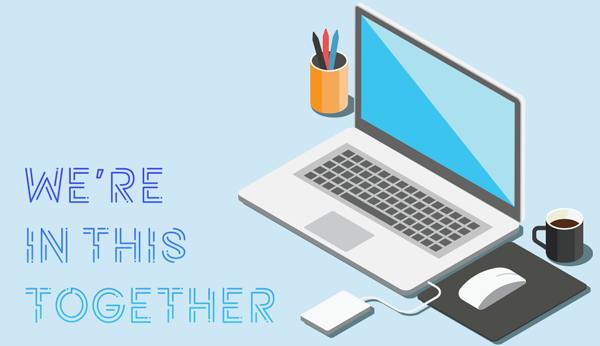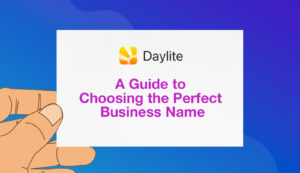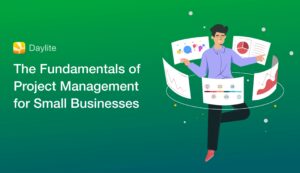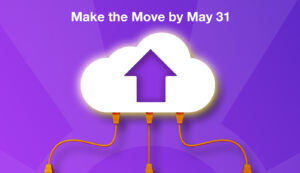Navigating rapid changes in unforeseen circumstances is never easy. With the current situation of the COVID-19 pandemic, businesses all over the world are feeling the personal and economic effects. It’s stressful, and there’s a lot of uncertainty which is scary.
It’s hard (we know) but it’s important to remember that with every challenge comes opportunity. Through the twenty years of our company history, we’ve had to pivot and navigate multiple recessions and situations to keep the business moving forward during difficult economic times. Through the dotcom bubble burst, 9/11, and the 2008 financial crisis, there are lessons we’ve learned along the way to navigate difficult economic situations.
Our core purpose is to empower small businesses, so we’re sharing these key lessons with you hoping they help spark some ideas so you can navigate this difficult time and come out on top! At the very least, we hope sharing our story of challenges we’ve been through and how we’ve adapted will give you some hope and motivation during a time when everything is in disarray. Looking back at challenges we’ve had in in the past has also reminded us that there’s hope to make it through. Like everyone else, we’re unsure and worried, but we’re reminding ourselves that we’ve been through challenging times before and survived so we can get through this together.
These lessons are not easy. Sometimes life throws you curveballs that force you to make tough decisions that are unpopular or unideal, but if you’re focused and stay optimistic, there’s a way forward.

1) Be objective and look for opportunities. Remember, it’s temporary.
Changes in the economy can quickly throw a business into shambles. But if you look at the situation objectively, you can find and create opportunities to pivot and make something better out of a crappy situation. It involves making tough decisions which may not be ideal, but hey, you gotta play the hand you’re dealt.
In 1999 when our CEO, Alykhan Jetha (AJ), started Marketcircle the original business plan was to build an online market place where people could buy and sell their services or products by negotiating deals – think eBay but with negotiations instead of an auction. AJ and Michael Clark (our current COO), had built the product but needed money to get it to market. AJ had set up a meeting with a potential investor, but by the time his meeting with this investor came, the dotcom bubble had begun to burst. AJ was told by the potential investor, “Everything is falling apart. Leave.” AJ and Mike’s business was at a standstill. They had accumulated $250K of debt to AJ’s friends and family to build this product. They now had the product but had only a few customers and not enough revenue to move forward. Given the economy at that time, they had zero chance of getting any investment money. As the saying goes, they were “up shit’s creek without a paddle.”
They had to make a decision and they had to make a decision fast. Do they fold the business, apologize to friends and family that they had no way to pay them back, and start looking for jobs? Or was there a silver lining – an opportunity to keep the business going? AJ and Mike sat and thought about their situation. They asked themselves what skillset they had, what the current market needed, and how they could pivot the business to leverage those skills and the current market needs.
An idea for an opportunity emerged. Their skillset was in coding and there were companies that needed custom development work. While it wasn’t what either AJ or Mike wanted to do, they sucked it up and pivoted the business to a consulting business that offered custom development work. It wasn’t what they were passionate about and it meant temporarily giving up on their dream for bringing a new product to the market, but it was a way to make money so they could pay back AJ’s friends and family over time. This was the first of many pivots in our company history.
There’s always a silver lining if you look for it, but sometimes it’s hard to see. For us at the time, the silver lining was through networking and building the business so far, we had built relationships with people who needed a skillset we had – coding. Try to be objective about your situation and look at the big picture. What skillset do you have? What does the current market need? And try to remember that it’s temporary. A shift in your business doesn’t mean it has to last forever.
Look at Lyft, for example. With people around the globe in self-isolation, nobody is taking rides to the office, to meet friends, or home from the bars (which are all closed). Lyft’s skill is in transportation. What the market needs right now are medical supplies to deal with the current pandemic and a way to deliver food to people’s homes while they’re in quarantine. People still gotta eat, right? So Lyft has pivoted to deliver medical supplies and meals.
Another example is Tito’s Vodka. With restaurants and bars closed and music festivals not happening anytime soon, Tito’s is probably selling way less alcohol than they usually do. Tito’s still has their facilities and equipment, so Tito’s has pivoted to using their equipment to make hand sanitizer.
2) You get “lucky” if you’re prepared
As the adage goes, luck is when opportunity meets preparedness. Life has a way of presenting opportunities and if we’re prepared and open-minded, we can jump at them and make the best out of a shitty situation.
While doing consulting work, AJ and Mike developed two products – partly for tech demos so they could showcase their coding skills to get new clients and partly bets to hedge so they could potentially one day focus on selling products. The first product was MarketGauge which was similar to what SurveyMonkey is today. The second was Daylite. AJ and Mike built Daylite to help organize themselves. They were so focused on client work that they’d often forget to follow up with leads and therefore missed out on business. So they built Daylite to help them keep on top of potential leads and manage projects at the same time. With Daylite they got two birds with one stone – they had a tech demo tool to show off to potential clients to land new deals and they had a way to organize themselves.
In 2001, the bulk of Marketcircle’s revenue was coming from custom development work for one specific client and this client’s biggest customer happened to be a business in the World Trade Centre. When 9/11 happened, it triggered a domino effect. Almost overnight, our main source of revenue dried up. This was an emotionally difficult time and there wasn’t an obvious path forward.
Luckily, around this time, AJ was invited by a friend to showcase MarketGuage and Daylite in their booth at MacWorld – which turned out to be just a stand but hey, they were grateful for the opportunity none the less. While at MacWorld, AJ happened to demo Daylite to someone that worked at Apple. They suggested AJ sell Daylite but insisted they add a list of additional features and it needed to be ready to ship in 3 months. AJ accepted the opportunity. Over the following 3 months, AJ worked 18-hour days 7 days a week on Daylite while Mike worked like crazy doing consulting work for a few small projects to keep the lights on. They made the April 1st deadline and from there, gradually pivoted the company to a product-led business and sold licenses for Daylite.
The moments leading up to this pivot were a matter of being in the right place at the right time. The rest was preparedness and the willingness to do whatever it took to leverage the opportunity when it presented itself. When we stay open-minded and accept small opportunities as they come along, they often lead to more opportunities.
3) People are often willing to help if you have a proven track record
Asking for help can be a challenging thing for most people. Admitting we need help can be a knock to our ego but the reality is that we all need help at some point or another. After all, we get by with a little help from our friends. But whether or not people are willing to help you out depends largely on your track record, which is why building trust and credibility is crucial. Don’t burn bridges.
In 2008 when the financial crisis happened and the economy tanked, so did Daylite sales. With new customer acquisition pretty much halted, our revenue stream was depleted. Meanwhile, expenses stayed the same. There wasn’t enough money coming in to cover money going out. So we did what most businesses did in this type of situation; we cut expenses wherever we could. Our marketing and advertising budget was the first to get the chop. We had to delay pay raises for staff and when a handful of employees left, rather than refill their positions, we spread the workload and leaned out as best we could.
Still, there wasn’t enough money to cover the team’s salaries so AJ went to friends and family who, luckily, were willing to help. Because they had cut so many expenses, it was only a bit of money that they needed to borrow so they were able to pay it back relatively quickly. The reason they were willing to help (on top of being generous people) was because AJ had a proven track record. For Game of Thrones fans, you could say he was a Lannister (A Lannister Always Pays His Debts.)
Had AJ and Mike walked away from the business when the dotcom bubble burst and not been able to pay back the money they owed, AJ’s friends and family would not have been willing to help them out again.
With the money from AJ’s friends and family, we were able to cover expenses long enough until the next opportunity to generate revenue came along.
4) Stay in touch with customers and look for unmet needs
It’s always important to keep in close contact with customers, but this especially rings true during difficult economic times. Touch base with them even if they’re not needing your product or service, just be there to listen. You never know what they may need that you can offer them, whether that’s now or in the future.
Through the 2008/2009 financial crisis, we were able to scrape by thanks to help from AJ’s friends and family. While we didn’t gain many new customers because of the economy, we didn’t lose many. We kept tight communication with clients and listened to their needs. We were hyper-focused on any issues or concerns they had and we did our best to quickly turnaround and meet their needs.
One of these needs was doing business on the go. Our current situation was that money was slow coming in and we needed a new way to inject cash into the business. People weren’t buying new licenses to Daylite because businesses everywhere were tightening up. But what we found was that they had a need for doing business on the go. Aha! Through this dark cloud, there was finally a silver lining – the iPhone! We focused our engineering resources on building Daylite for the iPhone which we could charge for because customers were willing to pay.
By staying in touch with customers through this economically difficult time and listening to their needs, we were able to react and come up with a new way to generate revenue, while scraping by in the meantime thanks to the help from AJ’s friends and family.
5) Seek advice from others and listen carefully
Nobody is an expert on everything, but it often feels like you need to be when you’re running a business. To expand your breadth of knowledge, lean on your network and ask advice from people who have experienced what you’re going through and come out on top. By building a network and asking others for help and advice, we can learn lessons without having to go through the mistakes ourselves. This of course, only works if we’re willing to listen and act based on the advice we receive.
In the years following the 2008/2009 financial crisis, Daylite sales gradually increased again as more small businesses began opening up and the need for a tool to help organize clients and projects grew. Then the next challenge emerged, a shift in buyers’ expectations. Cloud-based solutions became the new norm. At the time, Daylite was a self-hosted app and customers purchased licenses to buy the software. For a while, being one of few CRMs available as a self-hosted app with a license purchase was a unique selling proposition that worked in our favour. But after a while, being a self-hosted app became a hindrance as small business owners didn’t want to have to deal with the headache of setting up and managing a server. Cloud became the expectation in the buyer’s mind. We saw new customer acquisition slow and existing customers jumped ship to other CRMs that were cloud-based. Again, we had to make a difficult decision or we’d eventually be out of business.
Mike and AJ brainstormed options. We could continue selling Daylite as a self-hosted option but would need to jack the price substantially to make it a viable option. This would mean only a few customers would be able to afford it. Another option would be to rebuild Daylite as an online solution. But this would mean giving up the benefits of a real Mac app. AJ and Mike came up with a third option; keep Daylite as a real Mac app, but build a cloud backend and shift to a subscription model so customers didn’t have to manage the server and could pay small increments over time. This was the ideal option but the shift to a recurring revenue model would involve a lot of risk. Changing from a high upfront cost model to a low upfront cost model with payments over time would create a giant gap in revenue for at least 12-18 months, potentially even longer.
AJ leaned on his network for advice. A friend and advisor sat him down and warned him that 95% of businesses that attempt that transition fail and go out of business. He advised AJ to make the transition gradually. AJ took this advice and we gradually shifted the business to a recurring revenue model. We offered discounts to existing customers at a yearly price to move to the cloud-based option to help with cash flow during the transition and built tools to make it as easy as possible for customers to move to the new platform. During this risky transition, we were yelled at and sworn at by a handful of customers (which we understand), but the majority kept telling us how happy they were when they had made the switch. This motivated us to keep going and assured us we were making the right decision.
By seeking advice from people you trust, it can help you navigate difficult situations and avoid costly mistakes. This is also why it’s important to keep close communication with customers. Had we only listened to a handful of angry customers about our decision to switch to a recurring revenue model instead of keeping tabs on the majority of customers, we may have been persuaded to go with our first option. In retrospect, that option would have left us open to a lot of risk because with a small number of large accounts, had one of those gone out of business it would have ended poorly for us and we would have had to say goodbye to a bunch of our smaller customers.
6) Keep your ear to the ground and plan for worst-case scenarios
What is often referred to as “sudden” shifts or crises is usually not sudden at all. In most cases, there are warning signs and rumbling of a storm brewing. How closely you listen to that rumbling and what you do to prepare for the storm determines how well you’re able to weather it.
Through the dotcom bubble burst, the 2008 financial crisis, and the cloud trend, the one thing in common with these events were that they did not come as a surprise. You don’t have to be able to predict a pandemic, but you can predict that at some point things will go wrong. AJ’s always been in the habit of talking to business owners, executives in various industries, and reading credible news sources and thinking through worst-case scenarios. Because of this, he’s learned to identify warning signs and think through ideas for contingency plans before catastrophe hits. “If you keep your ear to the ground and come up with some ideas for worst-case scenarios, then you have time to think through options and maybe experiment a bit.” says AJ. “That way when the time comes and you have to go into contingency mode, you’re not forced into making a poor decision when you’re under stress. You’ve had time to think through a few different ideas. It’s better to have a few options ahead of time.”
This Productive Paranoia is mentioned as being one of the Three Leadership Skills That Count by Harvard Business Review and examples of this are documented in Jim Collins’ book Great By Choice.
Times are tough right now for everyone. Many businesses are losing customers (us included), some are going out of business, and companies all over are having to do massive layoffs. This is our current reality but what happens in the future depends on the choices we make and the opportunities we create. Nobody has all the answers, we’re all just trying to figure it out and adjust as we go and help each other however we can.
Our hearts go out to the people and businesses being affected by COVID-19. We hope you find these lessons we’ve shared useful and hopefully they spark some creative ideas and contingencies for you as we navigate this difficult time. If you’re struggling and just want to talk, we’re here for you – shoot us an email at info@marketcircle.com.



Great article. By far the most honest, insightful & helpful account I have read from Marketcircle, & perhaps from any small business. I feel privileged to have been a Marketcircle Partner in the UK for over 12 years now & like all businesses, we have weathered our own challenges.
We have discussed many issues over the years. AJ, Mike & the team at Marketcircle have always encouraged, trusted & supported us to prosper – for that I think you because its hard to imagine a world without Daylite.
Thank you for the support Bill 🙂